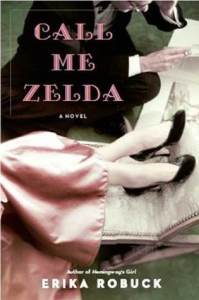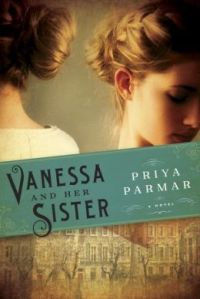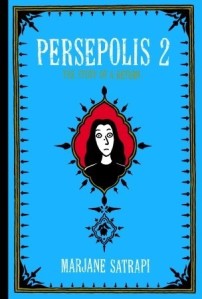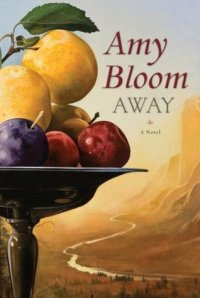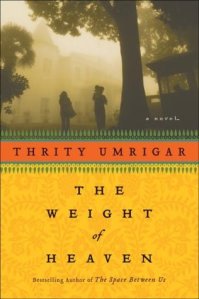I’m back and looking forward to another successful reading month as we approach the end of 2020, and thank Christ because this year has been horrendous. For September, I decided to switch gears in my reading choices, something that was slowly developing in the months prior, and those choices focused on contemporary Japanese fiction. I’ve finished a few wonderful titles: Territory of Light, Miracles of the Namiya General Store, and Tokyo Ueno Station.
October will be more of the same, but with a couple new releases that I am perhaps excessively excited about:
 Earthlings by Sayata Murata
Earthlings by Sayata Murata
Murata made a splash with her short novel Convenience Store Woman, and Earthlings is her sophomore English release. This work seems darker, with more mature and serious themes than her first English work.
Natsuki isn’t like the other girls. She has a wand and a transformation mirror. She might be a witch, or an alien from another planet. Together with her cousin Yuu, Natsuki spends her summers in the wild mountains of Nagano, dreaming of other worlds. When a terrible sequence of events threatens to part the two children forever, they make a promise: survive, no matter what.
Now Natsuki is grown. She lives a quiet life with her asexual husband, surviving as best she can by pretending to be normal. But the demands of Natsuki’s family are increasing, her friends wonder why she’s still not pregnant, and dark shadows from Natsuki’s childhood are pursuing her. Fleeing the suburbs for the mountains of her childhood, Natsuki prepares herself with a reunion with Yuu. (Goodreads)
Breasts and Eggs by Mieko Kawakami 
I’ve read Mieko Kawakami before and she never fails to disappoint with poignant and insightful works. Plus, Breasts and Eggs is one work that I was eager to get for it’s feminist examination of social issues important to Japan, particularly in light of how conservative the country tends to be on issues. It wasn’t originally as long as it is in English, having been expanded with a later look at the women this novel focuses on.
An earlier novella published in Japan with the same title focused on the female body, telling the story of three women: the thirty-year-old unmarried narrator, her older sister Makiko, and Makiko’s daughter Midoriko. Unable to come to terms with her changed body after giving birth, Makiko becomes obsessed with the prospect of getting breast enhancement surgery. Meanwhile, her twelve-year-old daughter Midoriko is paralyzed by the fear of her oncoming puberty and finds herself unable to voice the vague, yet overwhelming anxieties associated with growing up. The narrator, who remains unnamed for most of the story, struggles with her own indeterminable identity of being neither a “daughter” nor a “mother.”
In this greatly expanded version, a second chapter in the story of the same women opens on another hot summer’s day ten years later. The narrator, single and childless, having reconciled herself with the idea of never marrying, nonetheless feels increasing anxiety about growing old alone and about never being a mother. In episodes that are as comical as they are revealing of deep yearning, she seeks direction from other women in her life—her mother, her grandmother, friends, as well as her sister—and only after dramatic and frequent changes of heart, decides in favor of artificial insemination. But this decision in a deeply conservative country in which women’s reproductive rights are under constant threat is not one that can be acted upon without great drama. (Goodreads)
 Paprika by Yasutaka Tsutsui
Paprika by Yasutaka Tsutsui
I’ve had Tsutsui’s novel on my shelf for awhile, and I’m hoping before the end of 2020 that I can knock it off my TBR. I received it as a gift, and I cannot wait to see how far down the rabbit hole of weirdness it takes me.
When prototype models of a dream-invading device go missing at the Institute for Psychiatric Research, it transpires that someone is using them to drive people insane. Threatened both personally and professionally, brilliant psychotherapist Atsuko Chiba has to journey into the world of fantasy to fight her mysterious opponents. As she delves ever deeper into the imagination, the borderline between dream and reality becomes increasingly blurred, and nightmares begin to leak into the everyday realm. The scene is set for a final showdown between the dream detective and her enemies, with the subconscious as their battleground, and the future of the waking world at stake. (Goodreads)
Where the Wild Ladies Are by Aoko Matsuda
A busybody aunt who disapproves of hair removal; a pair of door-to-door saleswomen hawking portable lanterns; a cheerful lover who visits every night to take a luxurious bath; a silent house-caller who babysits and cleans while a single mother is out working. Where the Wild Ladies Are is populated by these and many other spirited women—who also happen to be ghosts. This is a realm in which jealousy, stubbornness, and other excessive “feminine” passions are not to be feared or suppressed, but rather cultivated; and, chances are, a man named Mr. Tei will notice your talents and recruit you, dead or alive (preferably dead), to join his mysterious company. (Goodreads)
This was a pure Instagram addition after seeing it on another Japanese Lit feed. The title makes me giggle, and I love it.
 One non-Japanese book I’ve started is Shadow of Night by Deborah Harkness, the second installment in the All-Souls Trilogy. I was in the mood the other night for something witchy and this fit perfectly with my mood. I loved the first, Discovery of Witches, so hopefully this won’t disappoint. If you like vampires, witches, elements of dark academia, with plenty of history, wine tasting, and paranormal romance done in an adult and smart way–then this is for you.
One non-Japanese book I’ve started is Shadow of Night by Deborah Harkness, the second installment in the All-Souls Trilogy. I was in the mood the other night for something witchy and this fit perfectly with my mood. I loved the first, Discovery of Witches, so hopefully this won’t disappoint. If you like vampires, witches, elements of dark academia, with plenty of history, wine tasting, and paranormal romance done in an adult and smart way–then this is for you.
Picking up from A Discovery of Witches’ cliffhanger ending, Shadow of Night takes Diana and Matthew on a trip through time to Elizabethan London, where they are plunged into a world of spies, magic, and a coterie of Matthew’s old friends, the School of Night. As the search for Ashmole 782 deepens and Diana seeks out a witch to tutor her in magic, the net of Matthew’s past tightens around them, and they embark on a very different—and vastly more dangerous—journey. (Goodreads)

